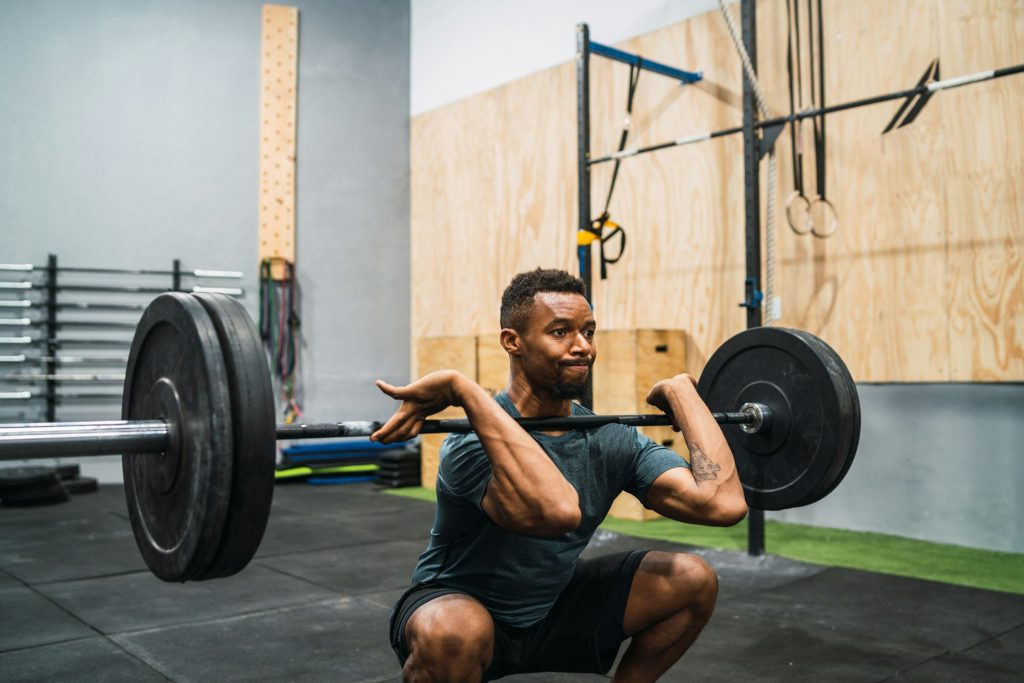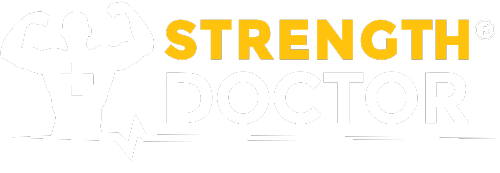Exploring the realm of PRP therapy for athletes unveils crucial insights that can enhance performance and aid in recovery. Before diving into this innovative treatment, understanding key aspects is paramount. From its historical roots in the 1970s to the modern-day applications for sports injuries, PRP therapy has evolved significantly. Athletes must grasp essential information on platelet-rich plasma therapy to make informed decisions regarding this regenerative approach.
Stay tuned as we uncover what every athlete should know before considering PRP therapy involving platelets. Gain valuable knowledge about the benefits, risks, and effectiveness of this treatment option tailored to athletes’ needs. Equip yourself with the necessary understanding of platelets to optimize your athletic journey with PRP therapy.

Table of Contents
ToggleUnderstanding PRP Therapy
How It Works
Platelet-rich Plasma (PRP) therapy involves collecting a blood sample, separating platelets, and re-injecting them into the injury site. The concentrated platelets stimulate the body’s natural healing process and promote tissue repair through rich plasma therapy. PRP injections, also known as rich plasma therapy, aim to accelerate recovery and reduce inflammation in athletes.
Benefits For Athletes
- PRP therapy can help athletes recover faster from injuries like tendonitis, muscle strains, and ligament sprains.
- It aids in reducing pain, improving function, and potentially avoiding the need for surgery with rich plasma therapy.
- Athletes may experience enhanced performance and quicker return to training after PRP treatment.
Risks Of PRP Therapy
Common Concerns
Athletes often worry about the effectiveness and safety of PRP therapy. Questions arise about the recovery time and how it may impact their athletic performance. Understanding the success rates and potential risks can alleviate these concerns.
Side Effects
Possible side effects of PRP therapy are mild, including pain or discomfort at the injection site. Athletes might also experience temporary swelling, bruising, or redness after the treatment. While severe side effects are rare, it’s crucial to contact the doctor if any symptoms persist.
Preparing For PRP Therapy
Pre-Treatment Tips
Athletes must discontinue steroid medications before undergoing PRP therapy to avoid interference with the treatment’s effectiveness. Avoiding certain pain relievers is also crucial to prevent any negative interactions with the PRP injections. These steps are essential for the success of the therapy.
Hydration plays a vital role in the effectiveness of PRP therapy, so athletes should ensure they are adequately hydrated before the treatment. Proper nutrition is equally important as it provides the body with the necessary nutrients for PRP healing factors to work optimally. Adequate rest is recommended to prepare the body for the therapy session.
Ensuring proper hydration and consuming a nutritious meal on the day of the PRP injection is crucial for achieving the best possible results. Athletes should prioritize staying hydrated throughout the day and consume a balanced meal that includes proteins, healthy fats, and carbohydrates to support the body’s healing process post-treatment.
What To Bring
Athletes should bring their identification, insurance information, and any relevant medical records to their PRP therapy appointment. Having these documents on hand can streamline the check-in process and ensure all necessary information is readily available to the healthcare provider. Comfortable clothing that allows easy access to the treatment area is recommended for convenience during the procedure. This will facilitate a smooth and comfortable experience during the PRP injection session.
Bringing a list of current medications and allergies is essential for the healthcare provider to have a comprehensive understanding of the athlete’s health status. This information enables them to tailor the PRP therapy according to individual needs and ensures that any potential risks or complications are minimized. Being prepared with this information can contribute to a more personalized and effective treatment plan for athletes seeking PRP treatments.
During The Procedure
Procedure Steps
The PRP procedure involves a few essential steps. First, the doctor will collect a small amount of blood from the athlete. This blood is then placed in a centrifuge to separate the platelets. After that, the concentrated platelets are re-injected into the injured area for healing.
- The treatment typically lasts around 90 minutes and is performed in-office.
- Resting after the procedure and reporting any unusual symptoms to the doctor is part of the procedure steps.
What To Expect
Athletes undergoing PRP therapy can expect a straightforward process with minimal discomfort during the injection process. It’s crucial to follow post-treatment care instructions, such as resting and avoiding strenuous activities immediately after the procedure.
- Immediate post-treatment care includes rest and avoiding specific activities.
- Understanding the expected recovery timeline and potential improvements in pain and function is essential.
Post Procedure Care
Immediate Care
After the PRP therapy, athletes must avoid touching or applying ice/heat to the injection site immediately. It’s crucial to refrain from strenuous activities and follow post-treatment guidelines diligently. Monitoring for any signs of infection or severe reactions is also part of immediate care.
- Avoid touching or applying ice/heat to the injection site
- Refrain from strenuous activities post-treatment
- Monitor for signs of infection or severe reactions
Long-Term Tips
For long-term benefits, athletes should follow a gradual return to exercise plan after PRP therapy. Maintaining a healthy lifestyle through proper nutrition and hydration is essential to support the healing process. Regular follow-ups with the healthcare provider and adherence to rehabilitation protocols are key for long-term recovery.
- Follow a gradual return to exercise plan
- Maintain a healthy lifestyle with proper nutrition and hydration
- Regular follow-ups with healthcare providers and adherence to rehabilitation protocols
Optimizing Treatment Outcomes
Follow-Up Care
Scheduled follow-up appointments are crucial for monitoring progress and making any necessary adjustments to the treatment plan. Athletes must attend these appointments to ensure optimal healing and recovery. Communication during follow-up visits is key, allowing athletes to express any lingering symptoms or concerns that may arise post-PRP therapy.
Understanding the significance of post-treatment care is essential for successful outcomes. Compliance with the doctor’s recommendations and following the correct rehabilitation plan can significantly impact the healing process. Athletes should actively participate in their recovery journey to achieve the best possible results and return to peak performance levels.
Lifestyle Adjustments
Athletes undergoing PRP therapy can benefit from making lifestyle adjustments to support their orthopedic health. Quitting smoking and reducing alcohol consumption are vital steps that can enhance the body’s natural healing mechanisms. By adopting a healthier lifestyle, athletes can optimize the effects of the treatment and expedite the recovery process.
Incorporating stress management techniques into daily routines can further aid in the healing process. Stress has been shown to negatively impact tendon healing and overall recovery, so managing stress levels is crucial for athletes seeking to maximize the benefits of PRP therapy. Adequate sleep is also essential for tissue repair and regeneration, contributing to improved outcomes post-treatment.
Athletes should consider modifying their training routines after undergoing PRP therapy. Adjusting training intensity and incorporating specific exercises recommended by healthcare professionals can help prevent re-injury and promote long-term orthopedic health. By customizing their training regimens, athletes can optimize their physical conditioning and reduce the risk of setbacks during the recovery phase.
Closing Thoughts
By now, you’ve grasped the ins and outs of PRP therapy, from its benefits to the potential risks and the crucial steps to take before and after the procedure. Ensuring you’re well-prepared and informed is key to optimizing your treatment outcomes. Remember, your active involvement in your care journey significantly impacts the results you achieve.
Make sure to consult with a qualified healthcare professional for personalized advice tailored to your specific needs. Your commitment to understanding and following the guidelines provided will not only enhance your experience but also contribute to a successful PRP therapy outcome.
Frequently Asked Questions
1. What Is PRP Therapy And How Does It Work?
Platelet-rich plasma (PRP) therapy involves injecting a concentration of your own platelets into the affected area to promote healing. Platelets contain growth factors that help in tissue repair and regeneration.
2. Is PRP Therapy Painful?
Discomfort during PRP therapy is minimal as a local anesthetic is usually applied before the procedure. Some patients may experience mild soreness or swelling post-treatment, which subsides quickly.
3. How Long Does A PRP Therapy Session Typically Last?
A PRP therapy session usually takes around 30-60 minutes, including preparation time. The injection process itself is relatively quick, but additional time may be needed for consultation and post-procedure care instructions.
4. How Many PRP Therapy Sessions Are Required For Optimal Results?
The number of sessions needed varies depending on the condition being treated. Typically, 3-4 sessions spaced several weeks apart are recommended for best results. Your healthcare provider will create a personalized treatment plan for you.
5. Are There Any Side Effects Associated With PRP Therapy?
Side effects of PRP therapy are minimal since the treatment uses your body’s own cells. Some common side effects include mild pain at the injection site, bruising, or swelling, which usually resolve within a few days.
Optimize Your Performance With Platelet-Rich Plasma (PRP) Therapy For Athletes In Tempe, Arizona
At The Strength Doctor, we are at the forefront of healthcare innovations, utilizing your body’s natural healing processes to enhance athletic performance. Our focus? Platelet-rich plasma (PRP) Therapy, is a revolutionary treatment that leverages the healing power of your own blood to accelerate recovery, reduce inflammation, and improve overall performance. Imagine harnessing detailed insights from your body’s biological data to refine your training strategy, enhance recovery, and prevent injuries—all through a minimally invasive procedure. That’s the advantage of PRP Therapy.
Our commitment to your health is enhanced by Dr. Clark’s personalized care, which ensures PRP Therapy aligns perfectly with your athletic goals. Alongside our advanced bloodwork analysis, we provide a comprehensive view of your body’s internal environment, empowering you to make informed decisions about your health and performance. Our services are designed to meet the highest standards of quality and safety, reflecting our dedication to your well-being.
Transform your athletic performance and achieve your health goals with our specialized services. Contact us today to schedule your appointment. Start your journey to optimal performance and recovery with The Strength Doctor!
Disclaimer
The materials available on this website are for informational and entertainment purposes only and not to provide medical or legal advice. You should contact your physician and attorney for advice concerning any particular issue or problem. You should not act or refrain from acting based on any content included in this site without seeking legal or other professional medical advice. The information presented on this website may reflect only some current legal or medical developments. No action should be taken in reliance on the information on this website. We disclaim all liability concerning actions taken or not taken based on any or all of the contents of this site to the fullest extent permitted by law.
